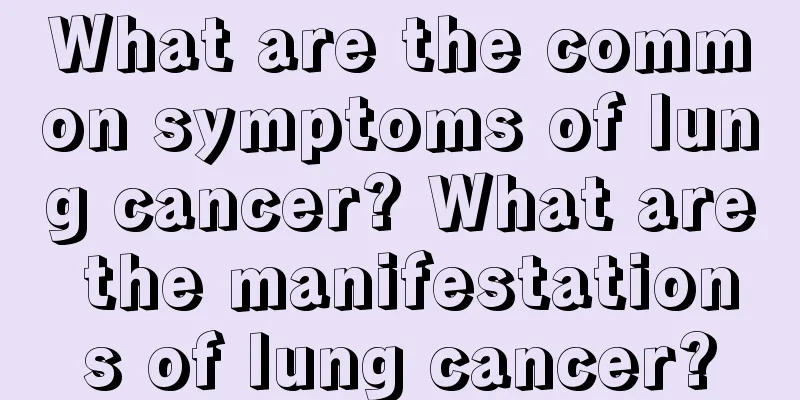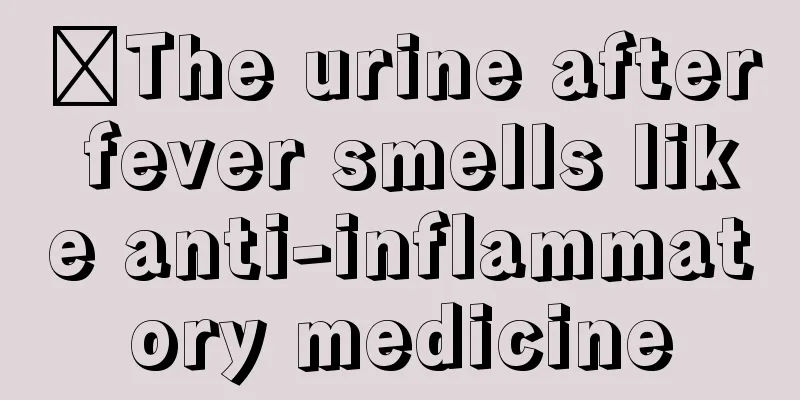Is the chance of recurrence of advanced gastric cancer high? The truth is this

|
Is there a high chance of recurrence after gastric cancer surgery? Surgery for gastric cancer is the most commonly used treatment method in clinical practice, and it is also the most direct and obvious way. However, in clinical practice, cases of postoperative recurrence are not uncommon. Many factors of the patient can lead to postoperative recurrence. The following is a detailed introduction to some factors related to postoperative recurrence of gastric cancer. Most patients with gastric cancer require palliative care at some point during the course of their disease. Approximately 50% of patients present with advanced, incurable disease at presentation, and even those who undergo potentially curative resection have high rates of distant and local recurrence. Palliative treatment for advanced gastric cancer can be local or systemic. Although cytotoxic chemotherapy is the most effective treatment for patients with metastatic disease, it is often insufficient to relieve local symptoms such as nausea, pain, obstruction, perforation, or bleeding from the primary tumor in locally recurrent cases, necessitating multidisciplinary treatment using endoscopy, surgery, radiotherapy, or other approaches. This topic will focus on local palliation for patients with locally advanced unresectable or metastatic gastric cancer. Chemotherapy for locally advanced unresectable or metastatic esophageal and gastric cancer is discussed elsewhere, as is endoscopic palliation for dysphagia and primary surgical management in patients with locally advanced or recurrent esophageal cancer. Local palliative treatment options Treatment options to control symptoms of local disease progression, such as nausea, pain, bleeding, and obstruction, include palliative surgical resection, surgical bypass (gastrojejunostomy), radiation therapy (RT), and endoscopic techniques. All forms of palliative care must consider the patient's overall prognosis to avoid excessive morbidity and mortality or prolonged hospitalization in people with limited life expectancy. Nonsurgical palliation Various nonsurgical measures have been evaluated to relieve obstructive symptoms or uncontrolled bleeding, which may be acute or chronic. Medical treatments, such as antacids and H2-antagonists, often have little benefit. In general, we prefer RT in most cases, especially in cases where it is necessary to control tumor bleeding, because it provides longer-term tumor control. For patients who cannot receive chemotherapy concurrently with RT, we prefer endoscopic stent placement rather than RT. In addition to the shorter duration of tumor control, stents can cause heartburn and require dietary changes to avoid stent migration, which can be difficult for patients. 1. Patients with advanced cancer were already in the advanced stage of gastric cancer before receiving surgical treatment In the late stage of gastric cancer, the tumor has penetrated the stomach wall, invaded the abdominal cavity and adjacent tissues, such as the pancreas, colon, liver, mesentery, etc., or metastasized to distant sites through lymphatic tissue. The tumor cannot be radically removed during surgery, resulting in varying amounts of residual cancer tissue in the abdominal cavity. These patients often experience recurrence soon after surgery. For example, there was an elderly patient who did not pay attention to his loss of appetite for 3 months. Later, he developed progressive weight loss, vomiting, and indigestion of food for nearly a month before going to the hospital for treatment. After examination, he was diagnosed with antral cancer with pyloric obstruction. During the operation, it was found that the tumor on the posterior wall of the antrum had adhered to the pancreas and could not be completely removed. Less than half a year after the operation, pelvic masses and ascites appeared 2. Surgical treatment is not thorough enough A few doctors only focus on the immediate effect, and improperly narrow the scope of radical surgery for gastric cancer from the perspective of trauma, resulting in a small amount of cancerous tissue or metastatic lymph nodes remaining in the abdominal cavity that is difficult to detect with the naked eye, and neglecting comprehensive treatment after surgery. They often recover well in the short term after surgery, but after a period of time (generally within one year after surgery), the cancer will recur. 3. Low immunity Many gastric cancer patients have already had a decline in immunity before surgery, which is mainly manifested in the decline of immune defense function, that is, the ability of immune cells in the body to identify and kill cancer cells is reduced; coupled with the impact of surgical trauma and anesthesia on the body's resistance, these patients have even lower immunity after surgery. If the patient's immunity is not improved in time after surgery, the patient's tumor often recurs after surgery; even if a more thorough radical cure is performed, some people will have a long-term recurrence after surgery. A middle-aged patient with stage II gastric cancer had a low level of immunity. Five years after radical surgery, a mass was found in the umbilicus, and pathological examination confirmed that it was metastatic gastric cancer. Friendly reminder: Gastric cancer patients are advised to pay more attention to the above factors. After surgery, they should take effective care of these factors under the correct guidance of a doctor to prevent recurrence. |
<<: The best treatment for colon tumors
>>: What is the cost of thyroid cancer imaging? Various symptoms of thyroid cancer
Recommend
How to cure early cervical cancer? What are the causes of these cervical precancerous lesions?
Cervical cancer is a very common cancer among fem...
The harm of liver cancer to the human body
Liver cancer is also a major cancer disease, and ...
What is the cause of ovulation bleeding?
Ovulation bleeding is something that every female...
How should we educate a one year and three month old baby?
A one year and three months old baby already has ...
Chronic obstructive pulmonary disease
I believe many people are not clear about what ki...
Postoperative infusion care for endometrial cancer
When certain problems occur in the body, the body...
What are the symptoms of severe cold?
According to the theory of traditional Chinese me...
Can a mole be removed by a spot?
If there is a mole on the face, it will make the ...
Is the nodule in the right lower lung serious?
Long-term smoking by men and air pollution will a...
How to effectively treat closed acne
Children who are still in adolescence must be tro...
What are the dangers of staying up late to surf the Internet
For some young people, they often have to study, ...
What is the reason for dizziness, nausea and vomiting when waking up in the morning?
It is important to understand the reasons why you...
What are the early symptoms of lung cancer? These symptoms of early lung cancer are common
Lack of exercise or decreased immunity may cause ...
How big is the genetic factor in bone cancer
Bone cancer is the most painful cancer for patien...
How to relax your eyes better
Long-term excessive use of the eyes can easily le...









